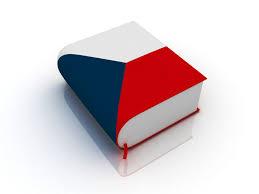
Table of Contents

Czech is undoubtedly one of the most developed languages in Europe. It emerged at the end of the first millennium from a western dialect of the Proto-Slavic language and has developed over the centuries to its present form, with between 250,000 and 300,000 word roots. There is no shortage of interesting and surprising facts about this language. Check how familiar you are with the Czech language:
Are you aware of some old Czech expressions and do you know that wonderful place where you meet “borok” and have to work “vartko”? Do you know how many words the average Czech knows and which language is the easiest for Czechs to learn? If not, read on. The Czech language is full of unusual and amusing facts and trivia that you won’t find in other languages.
What is unique about the Czech language, what has it given to the world, how many words does it contain and what records does it hold? February 21 is International Mother Language Day, which has been celebrating linguistic diversity since 1999 and is a great opportunity to learn more about this wonderful language!
The very first words of a Czech child
At around one year of age, the child begins to communicate with simple words that repeat syllables. The word “mama” is often the first and by far the simplest and most easily pronounced word. Similarly, the child continues to play with similar words such as “baba,” “daddy,” “peepee,” and so on. These words are important to children because they often express their needs, joy and desires, writes author Tereza Paštíková from the University of Hradec Kralove in her dissertation “Development of language skills in preschool children”.
Growing up further. The first phrases young Czechs learn to read are “meat” and “salt.”
When Czech children learn to read, they use a slabikarz (primer). Its content has remained virtually unchanged for a century. Strangely enough, it talks about meat, salt and cooking!
Máma mele maso. (Mama grinds the meat)
Ema má mísu. (Ema has a bowl)
Máme mísu masa. (We have a bowl of meat)
Máme maso a sůl. (We have meat and salt)

How many words are there in the Czech language
The Czech language has between 250,000 and 300,000 word roots according to various sources and is constantly evolving. The most extensive dictionary of the Czech language today, the Handbook of the Czech Language, published gradually from 1935 to 1957, has about 250 thousand entries. However, it contains words that are unfamiliar to few people today, and conversely, it omits some modern forms and vulgarisms, claims the online encyclopedia Wikipedia.
The letter Ř
If the letter Ř appears in a text, you can be one hundred percent sure — it is Czech. Although the letter Ř is also found in Silesian and Upper Sorbian. A similar consonant is also found in some Norwegian dialects around Narvik. However, of the official national languages, only Czech has this letter. The Czech letter Ř has appeared in the language since the 13th century, and its origin has several possible explanations. One of them is that it evolved from the letter R, which in Proto-Slavic was once followed by a softening vowel b, which later came to be written as an apostrophe. And from it eventually came the hook: mor’e became morzhe, tr’i – trzhemya, etc.

Longest Czech word
The first place among Czech words with the largest number of letters was taken by the word “nejzdevětadevadesvadesáteronásobitelnějšího”, which translates as “ninety-nine times longer”. It has only 38 letters, according to the iČeština website. First place for the longest word without vowels goes to “čtvrtsmršť” (storm chertvrť), according to the website of the Czech Academy of Sciences. Although many such rather meaningless words can be invented, as long as they do not contradict the Czech rules of word formation.
Most famous native Czech word
Writer Karel Čapek may not have realized the meaning of the word “robot”, which he coined for his drama R.U.R.. The word was originally suggested to him by his brother Josef Čapek when the writer was at a loss as to what to call an artificial being. Now the word is one of the most famous words of Czech origin and having become an integral part of the most common English language, it has been adopted by many other languages of the world.
There are other equally famous Czech words that have literally conquered the world and have entered an impressive number of languages, such as polka or pistol. You can find many other examples that have taken root in only one of the languages. English, for example, adopted hachek, i.e. hook, with the accent mark, or tunneling from the verb tunelovat, which originated in the Czech Republic in the turbulent 90s. In Polish, thanks to Czech, there is ponieważ (because), więzienie (prison) or wahać się (to hesitate). The Czech hamster form criceto seems to have penetrated into Italian. A large number of Czech words are found in German, especially in Austrian, which has adopted mainly culinary vocabulary: Buchtel (bun), Kolatsche (pie), Palatschinken (pancakes), Ribiselmarmelade (currant marmalade), Fisolen (beans), Kren (horseradish) and many others.

Which languages are easiest for Czechs to learn
There are three main criteria that determine whether another language is easy or difficult. First, how much the language has in common with your mother tongue or languages you know. Second, the sound system of the language and third, the difficulty of the grammar.
According to the ranking, Czechs find it easiest to learn English, Polish, Italian, Russian and for some reason Indonesian, according to the Presto website. Slovak, due to its linguistic similarities, can be understood, at least to a large extent, by every Czech. These languages have a very high degree of similarity, about 60-70% at the level of vocabulary and grammar.
Czech is a minority language in Portugal
Although Czech is not considered a world language, it is spoken far beyond the Czech Republic. It is considered a minority language in Poland, Serbia, Ukraine, Slovakia, Bulgaria and Austria.
Over the centuries, Czechs have immigrated almost everywhere. According to Euromonitor, outside the Czech Republic, Czech is most commonly spoken in Slovakia (24.86%), Portugal (1.93%), Poland (0.98%) and Germany (0.47%).
The largest number of Czechs abroad live in the USA, followed by Argentina, where mainly Czechs from Moravia and Slovakia moved during the First and Second World Wars. It is also worth mentioning the Czech minority in Croatia, where Czechs came mainly in the 18th and 19th centuries as sought-after specialists to set up manufactories. Since the nineteenth century, Czech has also been spoken in southern Romania, including in Serbia’s Banat region. However, only half of the original twelve settlements, where about 8,500 Czechs lived at the time, remain today.

Surnames may surprise you
Do you know what letter most Czech surnames start with? It is the letter K, and typical Czech surnames are Kopecký, Kratochvil, Karas or Komarek. However, the longest Czech surname starts with the unusual letter Č, and it is “Červenokostelecký”, consisting of 17 letters, as listed on the iČeština website.
Almost 1 percent of Internet texts are in Czech
Who would have thought that Czech would be among the 15 most popular languages on the Internet? It seems that the number of non-English pages on the web is growing rapidly. Czechs are more active on the Internet than Internet users in Denmark, Norway and Sweden.
Words borrowed from atypical languages
Besides the obvious borrowing of concepts and words from “classical” ones such as German and Latin, we can find other words. For example, which came from exotic Arabic “káva, algebra” (coffee, algebra), Finnish “sauna, kreslit” (sauna, draw), Japanese “gejša, mikádo, kimono, džudo” (geisha, mikado, kimono, judo) or even from Indian languages “čokoláda, kánoe” (chocolate, canoe), according to the book “Průvodce českým jazykkem” by Věra Dobešová and Vladimíra Fialová.
Vocabulary
Although there are up to 300,000 words and expressions in the Czech language, we don’t need that many for speaking. The average Czech vocabulary is about 50,000-60,000 words (mostly passive), of which the active vocabulary includes 3000-10,000 words, the number depending on the age and education of the user. Passive vocabulary, i.e. words we know but do not use, is 3-6 times larger. For comparison, the vocabulary of English is estimated at 500,000 words, German – 300,000 to 400,000, depending on whether all complex word formations are taken into account, and Russian – about 200,000 thousand words. Keep this in mind when you start learning Czech.
The word “Boroka” can only be found in Silesia
The Cieszyn dialect, which is mainly found in the territory of Cieszyn Silesia in the east of the Czech Republic, is known in this region mainly as “ponašymu / po naszymu” (our way). It is a very specific dialect combining Czech, Polish, Slovak, German and some isolated Silesian expressions, according to Wikipedia.
Only here you can find words like borok (poor man), štrample (tights), cukle (sandals), majtky (panties), vartko (fast) or bravek (pig). In total, there are about 16 dialects of the Czech language.
Among the disappearing dialects is the one spoken in the mountainous Krkonoše region. In an attempt to preserve it, a dictionary of terms and regional idioms used in local handicrafts and cottage industries, namely textiles and glass.
Czech is one of the few European languages that distinguish vowel lengths
Long vowels are indicated by a sharp dash above the letter (čárka) or, sometimes, a ring (kroužek). So when you see á, é, í, ó, ú, ů and ý, pronounce them 1.75 times longer. Does it sound difficult? Don’t worry! Even native speakers don’t always follow these rules, and people from the Ostrava region of Poland usually don’t pronounce them at all.
Archaisms that are no longer used
Almost every language has words and expressions that are obsolete and no longer used. In a professional environment, these are archaisms – words that, unlike historicisms, denote objects and phenomena that are still relevant, but for some reason are mostly used as synonyms.
Typical and already forgotten Czech archaisms include “drahný” (long, e.g. about time), “anžto” (because), “peku” (baking), “arci” (of course) or “škamna” (school desk), according to the website Moje Čeština.
There are a number of untranslatable words in the Czech language
Every language has untranslatable words. The Danes have hygge, and the Czechs have pohoda. Pohoda can be translated as contentment, although it is much more than that. Czechs are also known for their lítost, a phrase coined by writer Milan Kundera as a state of agony and anguish that arises at the sudden sight of one’s own suffering. Perhaps it’s because there is no verb in the Czech language for “hugs”!
Adding “-ovat” is an interesting way to turn international verbs into Czech verbs
Czech used to borrow a number of words from German (tepich, krám, punčochy or brýle), but now English loan words have taken their place. Czechs are very inventive in their use: just take a foreign verb and add the Czech grammatical affix -ovat to it, and you get googlovat, mailovat, esemeskovat.
Where is my house?
Did you know that the Czech hymn actually consists of only two stanzas and has been re-sung many times by other Slavic peoples? For example, there was a third stanza “for Moravia” whose authorship is still unknown, and the fourth stanza “for Silesia” was written in 1881 by František Polašek, a teacher from Orlov. There is also a fifth stanza “for Slovakia” and countless other paraphrases according to the online encyclopedia Wikipedia. The following stanzas directly refer to the places to which they are dedicated.
| Original | Translation |
|---|---|
| Kde domov můj? Kde domov můj? Voda hučí po lučinách, bory šumí po skalinách, v sadě skví se jara květ, zemský ráj to na pohled! A to je ta krásná země, země česká domov můj! | Where is my home? Where is my home? Water roars through meadows wide, Pines hum softly on the mountainside, In orchards blooms the spring’s bright hue, A paradise appears in view! And this is that beautiful land, Czech land, my homeland true! |

If you need a professional translation of Czech or any other language, you can always turn to our agency for quality translation services. We are always happy to receive new and interesting orders.
Source: https://1russian.com/what-will-surprise-you-about-the-czech-language-17-curious-facts/









Massimo Alef 21 w
I'm waiting for your comments